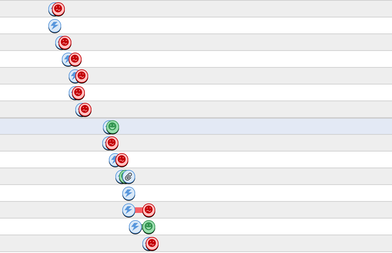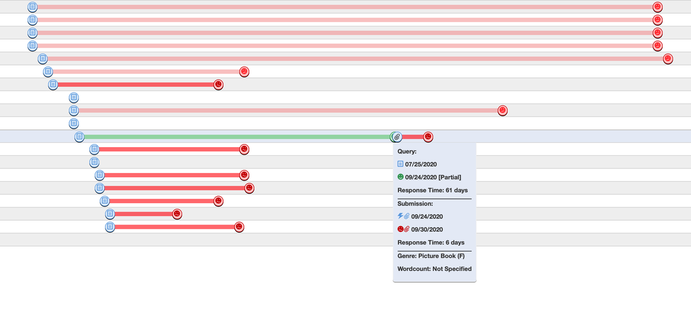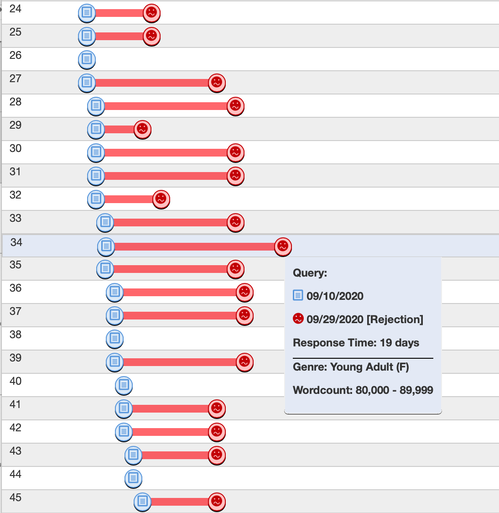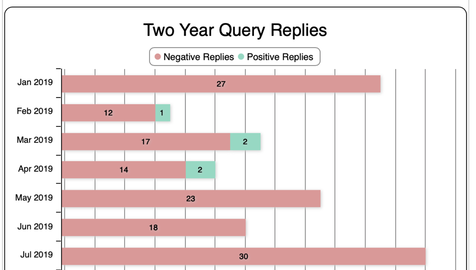|
For some time, I've wanted to share tips for researching and querying agents based on my experience and what I've gleaned from friends, authors, mentors, and years of compiling articles for Kidlit411. For the basics, check out YA author Angie Thomas's recent Twitter thread and Kidlit411's Submissions: Agents & Editors and Query Letters. Today I'll give some advanced tips for finding good agents, a smart query strategy, and due diligence once you get an offer. Three resources are especially helpful: Query Tracker (QT), Publishers Marketplace (PM), and Twitter. QT has a free version, but the paid subscription ($25/yr) gives you more powerful tools. PM is pricey, but it's worth paying the monthly fee ($25) once during the month you're researching agents. Be sure to enter my query + 10-page (or full PB ms under 1000 words) critique giveaway below! How to Find Agents to Query 1. Make an Initial List: Your first step is to identify agents who represent the types of stories you write. Some sources: Query Tracker (search by genre, category & who's open to subs); Manuscript Wish List (website that compiles agent wishlists); Literary Rambles (interviews with kid lit agents); my Twitter list of kid lit agents; Heather Ayris Burnell's Monster List of Picture Book Agents; market survey books (like Writer's Market 2020 or SCBWI's The Book); and more listed in Kidlit411's Submissions page.
2. Narrow down the list: To find agents who might be a good fit, read interviews, search #MSWL on Twitter (agents post wishlists using this hashtag), follow agents on Twitter, attend conferences or workshops (if possible), and ask fellow authors.
3. Weed out schmagents: Sometimes you'll run across an agent who is predatory (e.g.charges fees); does not adhere to acceptable practices (e.g. pitches clients in a mass email); or is simply not that good (e.g. at an agency that has a reputation for training agents poorly or worked many years with few sales). To find out whether an agent is legit:
A Smart Query Strategy Many have given this advice, and it works: query in small batches (7-10) agents at a time. Wait to hear (or not) from them and revise your query package accordingly. Radio silence means your query or first pages need work and champagne rejections can help you revise. Once you get requests for partials and fulls, be patient and wait for feedback to see if you need to revise your manuscript before the next round. The idea is to improve your query and manuscript until you land an agent. Specifically:
These QT timelines are also helpful to let you know where the agent is in their reading and if they go in order. Each of the entries is clickable and will show the submission date and agent response. For example, if you see agent responses stopping in August 2020, and you submitted in October, you know you have a bit to wait. If the agent has rejected every ms before and after yours but your entry has not been acted on, it might be under consideration. For example, this agent rejects fairly quickly but skips entries (#s 26, 38, 40, 44 are presumably maybes): Premium QT has all sorts of other fun reports, like rejection rates by genre or a two-year chart showing responses: (Note: QT only tracks queries self-reported by other QT users; as a result, it's a partial window into an agent's in box). The point of this strategy is to not blow your chances by sending your first, possibly ineffective query to all of the agents on your list. If they all result in rejections or radio-silence, that manuscript is rendered effectively un-queryable and you won't know what needed work, your query or your manuscript. Bottom line: If at first you don't succeed, at least fail smarter. The key to this strategy is PATIENCE. I know how tempting it is to send a query out sooner than a manuscript is ready (I've done this!). By using this strategy and revising based on feedback, you will get to a point where your query package is strong enough to consistently get requests. At that point, you can query more widely (or at least make sure your top choices have your query, because it's bad form to send new queries once you receive an offer). While you're waiting to hear back, work on your next project. Due Diligence When you get an offer, it's time to dig even deeper and do your due diligence.The first step is to have a call with the agent to get to know them better and find out if you might be compatible (e.g. Beyond the Basics for the Agent Call, 10 Questions to Ask When Offered Representation by a Literary Agent). As part of that call, ask for client references and contact them.
FINAL NOTE: All of this takes time and patience and assumes your manuscript is ready to query (get critiques & revise!). The more carefully you research an agent at all stages, the more likely you'll get a positive outcome. Was this post helpful?
If so, I'd be grateful if you share this post and add my forthcoming MG books to your Goodreads lists (Hana Hsu & The Ghost Crab Nation and Manatee's Best Friend). To receive notice of new posts, please subscribe to my email newsletter:
1 Comment
|




